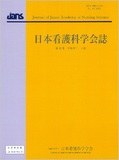Japanese
English
- 販売していません
- Abstract 文献概要
- 参考文献 Reference
要旨
目的:育児のために短時間正職員制度を利用している看護師が,働く上で,どのようなものが就業継続を可能としている原動力になっているかを明らかにする.
方法:東海圏内の200床以上の病院に勤務している短時間勤務看護師11名を対象とし,半構造的面接を実施し,質的帰納的に分析した.
結果:短時間勤務看護師の働く上での原動力として,【短時間勤務であっても変わらぬ看護師としての思い】【職場で自分が必要とされているとの実感】【短時間勤務で働くことを前向きにしてくれる周囲の存在】【ワークライフバランスの充実を支援する職場環境】【生活を維持できる安定した給与体系】の5カテゴリーが抽出された.
結論:短時間勤務看護師の働く上での原動力は,専門職としての自律性,人との関わりから得られる自尊感情,仕事と生活の調和を可能にする環境,生活を維持できる安定した給与体系であった.
Purpose: To determine what is the driving force that makes it possible to continue working for nurses who use the short-time regular employee system to enable them to take care of their children.
Method: Eleven nurses working short-time shifts at a hospital with more than 200 beds in the Tokai area were selected as subjects, and semi-structured interviews were conducted with them and examined using qualitative inductive analysis.
Results: Five categories were extracted as the driving forces for nurses to work short-time hours: "The consciousness of oneself as being a nurse remains unchanged even if working short-time hours," "The feeling that one is being seen as a useful and necessary person in the workplace," "The presence of people around one who have a positive and encouraging attitude toward working short-time hours," "Workplace environment that supports a fulfilling of work-life balance," and "A stable salary system that allows you to maintain your livelihood."
Conclusion: The driving forces for short-time nurses to work were found to be professional autonomy, self-esteem derived from having relationships with other people, an environment that makes it possible to attain a work-life balance, and a stable salary system that allows you to maintain your livelihood.
Copyright © 2023, Japan Academy of Nursing Science. All rights reserved.


